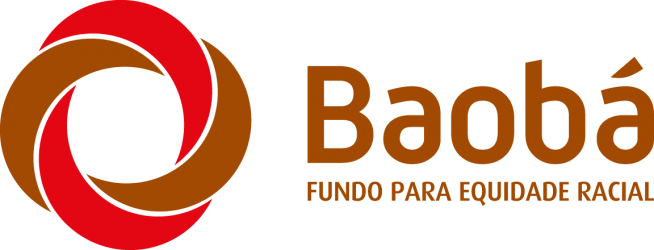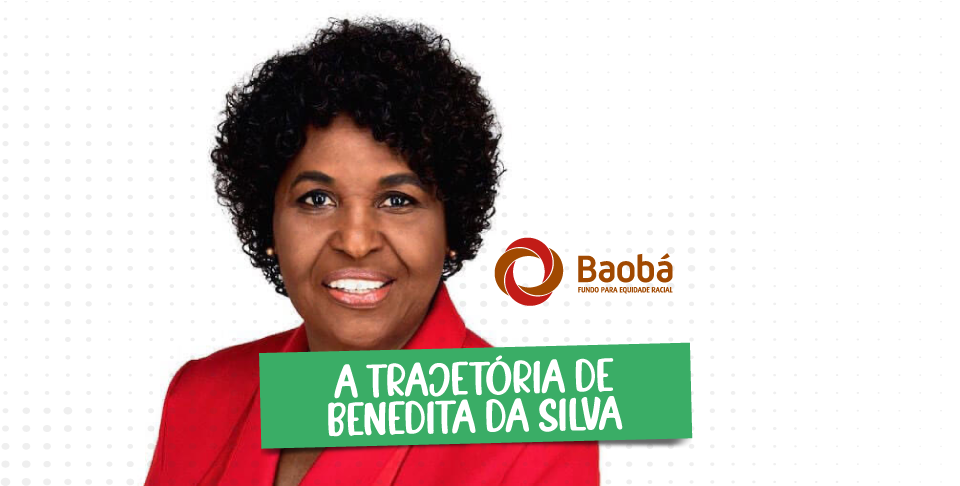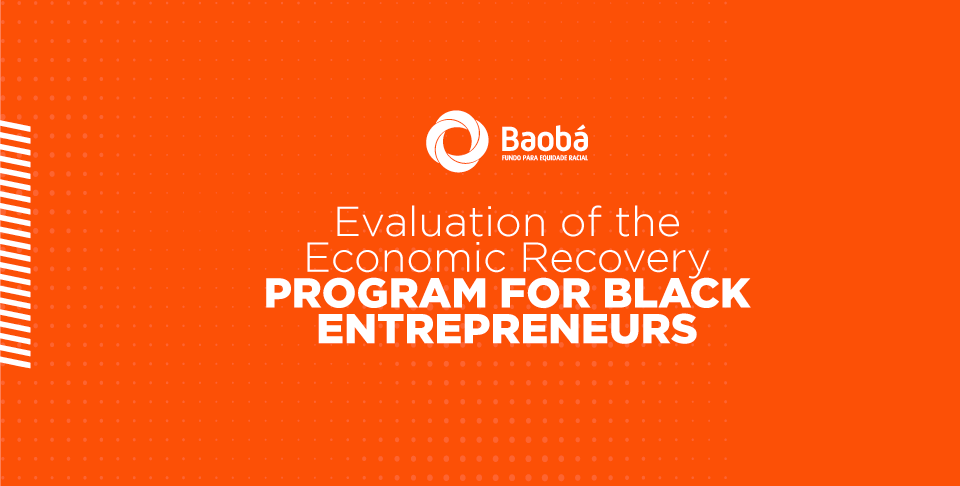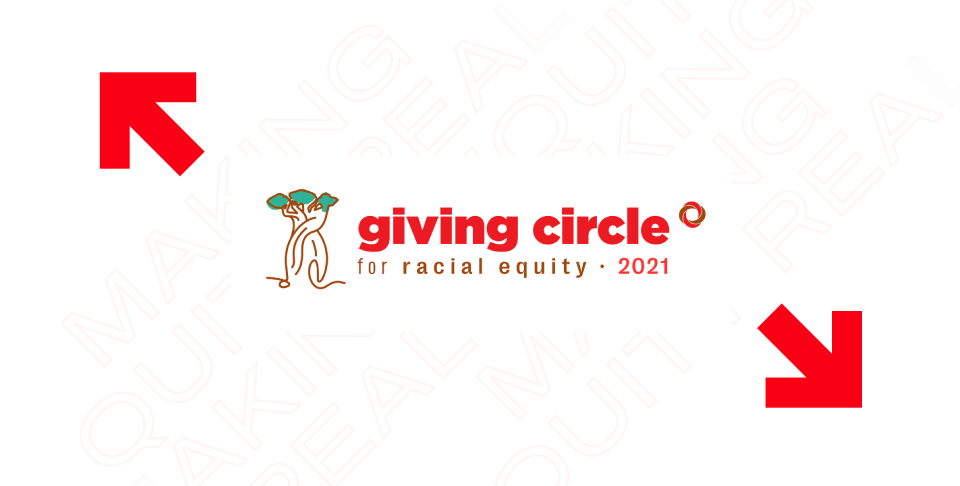The black population has always undertaken it. Faced with so many challenges and structural racism itself, he had to learn in practice how to create his own businesses, even without incentives or public policies that could meet so many needs.
Blacks and blacks are protagonists when it comes to innovation and a way of undertaking. With business models that really impact the communities where they are inserted, they make a difference with more circular and community formats that run away from traditional capitalist logic.
But have these entrepreneurs managed to keep their businesses active in the midst of the pandemic? What were the biggest challenges? What incentive policies were created or not to support these business leaders working in the communities that were most impacted by the pandemic?
Thinking about the most diverse challenges that were presented and that still extend throughout the country, the Baobá Fund for Racial Equity, in partnership with Coca Cola Foundation, Coca Cola Brazil Institute, BV and Votorantim Institute, launched in November 2020 the Program for Economic Recovery of Small BusinessEs of Black Entrepreneurs.
Together with Fa.vela – an entrepreneurial, innovative, digital and inclusive education and learning hub – we followed 46 initiatives and 137 entrepreneurs from all over Brazil throughout 2021, and they received financial support of R$30,000 per initiative.
With consultancies, workshops and processes of exchange and learning in a virtual way, we understand the power to financially support these enterprises, reaching the end of 2021 celebrating the permanence of these small businesses, which not only strengthen the ecosystem of Afroentrepreneurship in Brazil, but also of all the territorialities where they operate.
Why support black enterprises?
With a wide diversity of business, we can once again notice the creative powers that come from the edges of both cities and countryside, which still suffers from racism in our country.
More than half of the Brazilian population is black, composed of about 56% black and brown. Of these, ibge (Brazilian Institute of Geography and Statistics) estimates that at least 14 million are entrepreneurs. A market that moves up to 1.73 trillion of the country’s economy annually.
With the pandemic, the entire business ecosystem has been shaken. The Global Entrepreneurship Monitor Survey (GEM 2020), conducted in Brazil in partnership with Sebrae (Brazilian Service for Support to Micro and Small Enterprises) and IBPQ (Brazilian Institute of Quality and Productivity), showed that, from 2019 to 2020, the number of entrepreneurs in Brazil fell from 53.4 million to 43.9 million.
But if there is a niche that suffered even more, this was certainly that of small entrepreneurs, especially black and peripheral:
The research “The impact of the coronavirus pandemic on small businesses”, developed by Sebrae in partnership with the Getúlio Vargas Foundation (FGV) with 7,403 entrepreneurs, in June 2020, shows that businesses led by the black population were the most impacted, mainly because they serve essentially in person (45%). Among whites, the proportion was 36%.
Of all the interviewees, 70% of the businesses were conducted by blacks who lived in municipalities where the partial or total closure of the establishments occurred. In this scenario, the majority were young, women and with a low level of education.
The necessary isolation to brake the new coronavirus came full of difficulties for the maintenance of the business itself. The same survey indicates that 46% of black-led enterprises had to temporarily stop operating.
In the midst of a crisis scenario, black entrepreneurs still had more refusal when borrowing (61%) when compared to whites (55%), even the amount requested by blacks ($28,000) was 26% lower than whites ($37,000).
Taking this scenario into consideration, our goal with the Economic Recovery Program was to support black entrepreneurs and entrepreneurs from the peripheries to go through this moment of crisis caused by the Covid-19 pandemic.
At the end of the program, we carried out a process of evaluation of results, with the objective of telling how these women and men, distributed throughout all corners of Brazil, are making a difference in their territories. Even in the face of an economic crisis, they continue to turn the local economy, in addition to multiplying their knowledge and services to others and new entrepreneurs.
Evaluation paths
To arrive at the results of the program, we have the support of an external consultancy, Window 8, and we have traveled some paths together with supporters, performers and participants of the program. The first step was the analysis of information and documents collected during the program, such as the survey of registrations and other databases of participants in the production processes, narrative reports and accountability prepared by the entrepreneurs themselves.
The reports prepared by the Fa.vela Hub were also important references to arrive at the details of the evaluation, and also to define the main points of transformation desired by the program through a Theory of Change.
The Theory of Change allowed delimiting the desired impact of the program: the promotion of a dignified life for black subjects and families through the improvement of their financial conditions. In addition, the main results, products, interventions and target audience were highlighted, as well as the premises of the program.
From there, interviews were conducted with stakeholders and listening groups with program participants. The data and information collected were analyzed and consolidated in a full report and in an executive summary (available for download here).
Profile of participants
“There are no edicts that support the northeast and the black population,” was a recurring phrase in the evaluation process of the program.
Understanding the importance of geographic diversity and the reality of initiatives located in the north and northeast, with support below what they need, the Economic Recovery Program prioritized these regions in the selection of entrepreneurs.
The Northeast is the place where most of the selected initiatives are concentrated, especially Bahia (37%). To speak in territory at this time of pandemic is to remember that Covid-19 has not affected populations only in the highest peaks of the disease, but also economically, including in the post-first wave of the disease.
With unemployment hitting record highs in 2021, many people have had to resort to formal work or else raise their own means of survival and sustainability. The program was important for supporting businesses of people who work mainly alone (44%) or with their families (31%). In addition, more than 60% of the supported enterprises employed at least one (one) person in their activity (informally or formally) during the implementation of the Program.
Black women: business leaders
We selected 46 initiatives composed of three black entrepreneurs and entrepreneurs throughout Brazil, covering a whole 137 entrepreneurs. The main age group of participation is between 25 and 35 years (43%), followed by people who are between 36 and 50 years old (36%). More than half of the enterprises (56%) are made up exclusively of women, showing how the program mainly impacted black women.
In relation to schooling, there was an important distribution among people with different levels of education: 25% have completed high school, 24% have completed higher education and 26% have completed higher education.
Entrepreneurship from the peripheries
Among the businesses supported by the program, most fall into four segments:
food (19%), crafts (13%), agriculture (12%), sewing (12%) and beauty (8%). The Program also supported initiatives in the areas of fashion and clothing, tourism, health, communication, culture and events, education, fishing and service delivery.
The contemplated initiatives are located mainly in urban areas (73%) and in the peripheries (77%), showing the importance, once again, of local businesses.
Being in the peripheries also symbolized a challenge, given the long distances, since some initiatives opted for the delivery format, requiring thinking means of transport for these deliveries, as we can see in this statement.
“We had already started the project and the project gave an incentive for us to continue. In this time of pandemic we had to take a break from the service because of the agglomerations. We had to pause a year and a half. Another idea came up that we had so as not to be totally stopped. We had the idea to deliver cake, but the city is 8 km from our community. The project came about in an hour of great challenge, improved the initiative.”
The impact on communities
The entrepreneurs related to their communities in the most different ways, either by disseminating content, by sharing the learning acquired throughout the program or, then, supporting the donation of basic baskets in the face of food insecurity that was imposed through out the Brazilian territory in the midst of the health crisis.
According to the reports of entrepreneurs, at least 16% say that their communities are an important consumer public. In addition, 27% of businesses generate jobs in the territory, as we can see when we hear some reports like this: “We were able to give more visibility, increase the workforce and increase the space. With the larger space, it gave more visibility and attracted more audience. It made a big difference. Today our initiative is more able to receive the public that we are receiving today. We can also help more people in the community,” they point out.
The program was a great promoter of the feeling of belonging in relation to the community, since there was an incentive to look around and think about the business through the local population, in addition to strengthening the territories themselves, as one of the entrepreneurs says: “For us, it is important the impact of our activities and enterprises on the community, because we believe we can grow together. Therefore, we carry out workshops, trainings, conversation wheels improving the techniques of each entrepreneur and dialoguing knowledge with the community.”
Program findings and powers
From the arrival of the program to the evaluation process, black and black entrepreneurs were acquiring several learnings, able to ensure the survival of their business and also expand the impact they already had on their locations.
According to the business leaders themselves, 3,020 people living in the communities close to the projects were indirectly benefited, as the program positively fostered the spirit of belonging to the communities where they are inserted and encouraged local actions.
Throughout the program, formative processes were the heart of the journey. In total, 447 hours were dedicated to learning, 282 of which were dedicated to mentoring customized each business.
Since the peripheries are already known spaces of knowledge sharing – a practice inherited by the experience lived in community by quilombos and indigenous territories – in the program this experience of sharing learning was also evident in the testimonies collected.
Entrepreneurs narrated the realization of actions to disseminate content and resources to the communities where they are inserted, which contributed to this expansion on a larger scale of the program, also strengthening the ties of business, especially among black women.
Mentoring was also beneficial to broaden understanding of projects, defines priorities, ask questions and also carry out longer-term planning, since the program has brought these people tools about entrepreneurial practice.
According to the participants’ reports, 69% stated that they had overcome the main challenges they had at the beginning of the program. In addition, there was a 22% increase in business formalization.
All this occurred from the expansion of awareness about the importance of key elements for the maintenance and continuation of the business, such as documentation, accountability and communication planning.
Far beyond the program: subjectivities under construction
If there is one element that has crossed the entire Brazilian society in the midst of the pandemic, this was certainly internet access. Whether to be close to family or friends or, to access basic rights, such as Emergency Assistance, the internet proved fundamental.
The country, however, still has a great challenge when we talk about access, especially in territories further away from the central regions. This scenario was no different when we looked at the reality of the entrepreneurs contemplated in the program.
At least 82% of them claim that, with the program, they managed to overcome the challenges and inserted their business into the virtual universe, making digital inclusion one of the great gains of the program, since it was allowed to invest in the purchase of computers or internet points.
It is possible to understand the importance of the program when listening to the entrepreneurs themselves. “We had no prospect of anything. We had a business that started gradually. With the edict I went a long time without believing what had happened. We bought raw materials, equipment we needed.”
The challenges of black women who undertake
When we talk about entrepreneurship, it is important to remember that, even full of creativity and great ideas, the black population still faces structural challenges to access the entrepreneurship market.
This fact could also be noticed during the realization of the project, given the fact that many people could not devote themselves entirely to their business, because they needed to supplement the income in various ways, not having time to focus on their personal project. Of the entrepreneurs and entrepreneurs supported, 53% had in the enterprise a complementary source of income and for 47% the business was the main source of income. Somehow, the program also managed to support these people, who in some cases were about to give up investing time in their ideas.
About this, they reflect on the difficulties of living in their own business. “We know that black women making money, we are often there trying to make our business become our main source of income, but we have other employment relationships to be able to supplement the income.”
Mental Health and Self-Esteem of the Black Population
The mental health and self-esteem of black women are also unmeasured impacts that are worth noting, because they say about the personal strengthening of these leaders and the possibility of continuing their projects with autonomy.
“We didn’t believe that a project could target black and poor people without wanting anything in return. We didn’t believe we’d have visibility,” says one of the entrepreneurs heard.
When we heard the public supported by the project, the racial issue was also in evidence. For them and them, the program was a way to reflect once again on the racial prejudices they experience as black people, including to undertake, becoming a limiting person of their own work.
For one of them, if there’s a way to “hit the system in the face” is when black women can show their abilities. “It is when we put the face to the slap and prove that it is possible, especially us, women, black, young, rural, maroons. It has a whole baggage that is out of the pattern of a society that is prejudiced the way it is ours,” he points out.
Impact and continuous learning process
More than financial resources, it is confirmed the importance of uniting entrepreneurs with tools that enable them to continue their business, even after the end of resources equal to those of the program.
“The edict did not only give money, also taught how to follow, showed other paths,” pointed out some of the entrepreneurs heard and heard.
Showing paths of autonomy, especially financial, and ways of undertaking that continue the central idea is a way to continue impacting both the enterprises and the communities themselves. Among the preferred courses are those related to financial issues, in addition to sales and digital marketing. At least 68% of the participants stated that they had learned from the program.
“Money was something we lacked. Having an edict that would allow us to move in some way was very good. When we found out that the formative processes were still going to take place, it was very much married to what we had already been talking about. The project has already come with a complete package. They were the three ideal routes that we didn’t even expect, but it was in the package. “
Final reflections
The program met a real demand for increased vulnerability of the small and nano entrepreneur, caused by the worsening of the pandemic, and may realize that, even the objective being economic recovery, the project also had indirect and personal impacts for each selected person.
Even though it is not possible to measure how financial resources will continue to collaborate for the maintenance of the business, with the end of the program, it is possible to say that mentors and consultancies have mainly strengthened entrepreneurs and entrepreneurs with essential knowledge to continue following with their ventures.
We highlight that it is always important to consider the aspects of development of personal skills and abilities, as these are the greatest highlights at the end of the project, also influencing the continuity of entrepreneurial activities after intervention.
We highlight some of the greatest results:
# 46 initiatives and 137 entrepreneurs directly impacted
#3,020 people linked to the communities of the enterprises were impacted indirectly, with 77% of the initiatives concentrated in the peripheries.
# 88% of entrepreneurs said they use part of the resource to acquire electronic equipment to participate in the virtual activities of the program
#40% of the expenses included in the category other expenses are related to courses and /or technical consultancies to support the business, which demonstrates how these and these entrepreneurs are thinking about their business also in the medium and long term.
# At least 68% of participants stated that they had learned from the program. There were 447 hours of training, 282 of which were dedicated to mentoring customized to each business.
# 69% of entrepreneurs overcame the main challenges they had at the beginning of the program.
# There was a 22% increase in business formalization.
# At least 82% of them said that, with the program, they managed to overcome the challenges and inserted their business into the virtual universe.
# 78% acquired raw material and performed acquisition or maintenance of equipment.
# 75% bought from community suppliers and 57% declared that the clientele increased considerably.
# The Baobab Fund Notice was, for many, the first opportunity to mobilize external resources, impacting the participants’ self-confidence.
# The statements of strengthening among black women appeared spontaneously in the evaluation process, showing the importance of actions to increase self-esteem and self-confidence.
# The creation of networking networks among entrepreneurs from different locations in this time of crisis can be seen as one of the greatest subjective and qualitative gains of the project.




